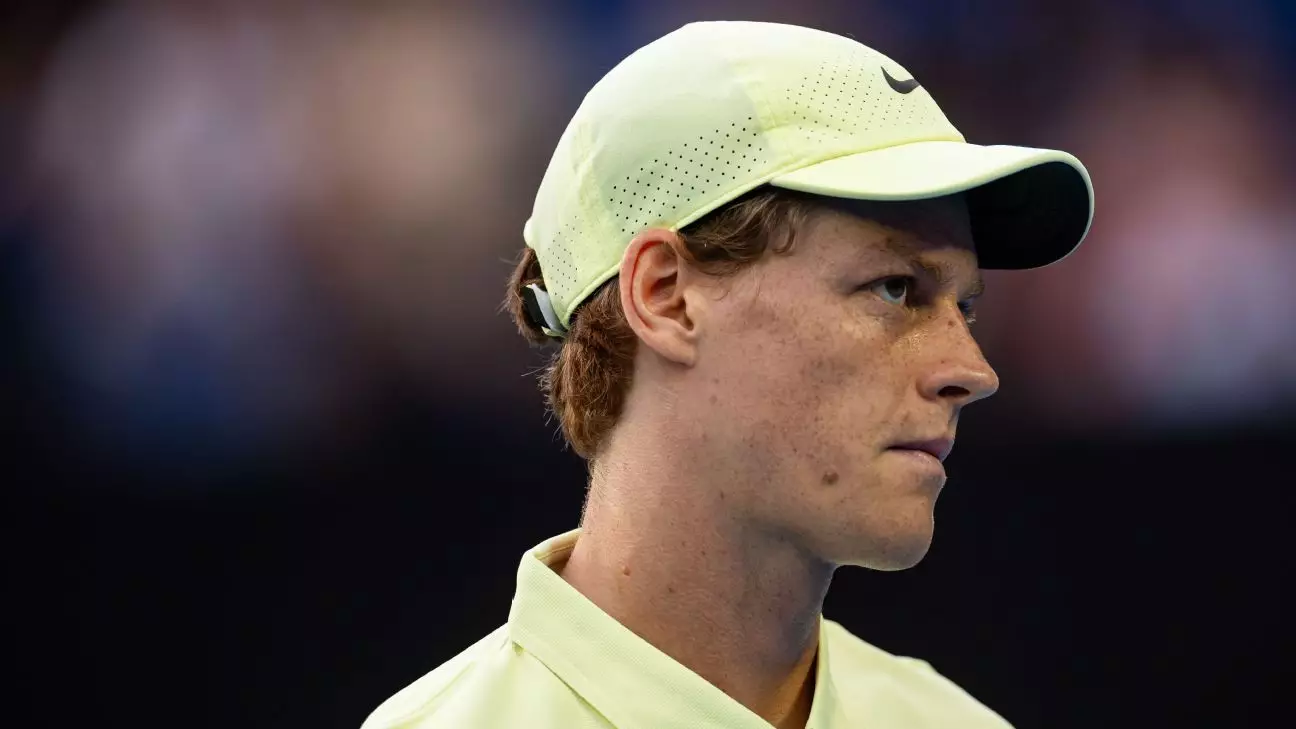The world of sports often finds itself entangled in complex narratives, especially when it comes to issues like doping. The recent withdrawal of Jannik Sinner’s nomination for the prestigious Laureus World Sportsman of the Year award serves as a vivid reminder of how such allegations can overshadow an athlete’s achievements. Sinner, a player with immense promise and accolades at just 23 years old, is now facing the consequences of two positive doping tests that have led to a three-month ban, sparking conversations about athlete accountability and the impact of doping in competitive sports.
Sean Fitzpatrick, chairman of the Laureus World Sports Academy, confirmed the withdrawal in a statement explaining that the three-month suspension, which emerged from a consensus between Sinner and the World Anti-Doping Agency (WADA), necessitated this action. Despite Sinner’s relatively young age and the potential for a bright future in tennis, the Academy has taken a clear stance by asserting that any form of suspension disqualifies a player from competition recognition. This decision clearly reflects the Academy’s commitment to maintaining strict integrity standards, even if it means sidelining promising talents.
Last February, Sinner and WADA reached a settlement regarding his doping case that had lingered in the headlines. Initially not suspended by the International Tennis Integrity Agency (ITIA), Sinner had argued that his positive test for Clostebol—a banned anabolic steroid—was due to inadvertent exposure after receiving a massage from a trainer who had used the substance. Following this, the ITIA deemed the contamination accidental. However, WADA contested this ruling and sought a harsher penalty, complicating the young athlete’s already precarious situation. Ultimately, the negotiations resulted in a limited ban that, while preferential compared to the potential year-long suspension, still highlights the precarious balance between sports purity and individual circumstances.
Although Sinner will not be sidelined during major tournaments, including the upcoming French Open, the shadow of this incident looms large. For athletes, such cases represent a critical test of their reputation and career trajectory. Sinner’s case sends a powerful message regarding the need for athletes to navigate their professional lives with heightened awareness of their surroundings, especially concerning those they rely upon for support and training. Moving forward, this event may compel younger athletes to consider the potential long-term ramifications of their athletic environment and choices more prominently.
Sinner’s situation is not only a personal dilemma, but it also serves as a focal point for the broader discussions around doping in sports. It aligns with a recurring theme whereby the integrity of competitive sports can be easily tarnished, and how, in the eyes of the public and award bodies, even accidental infractions carry significant weight. As observers await the announcement of this year’s new nominees for the Laureus awards, with last year’s winners being Djokovic and Aitana Bonmatí, Sinner’s withdrawal adds a layer of complexity to the celebration of sporting excellence. The reaction from fans and sports analysts alike will be pivotal in shaping ongoing discussions surrounding doping practices and athlete accountability.

